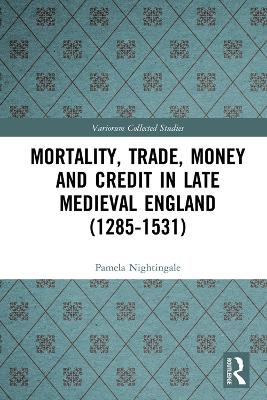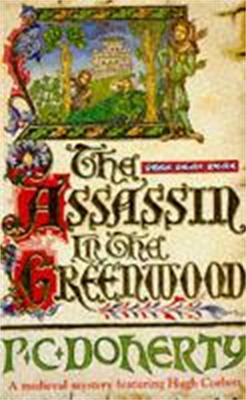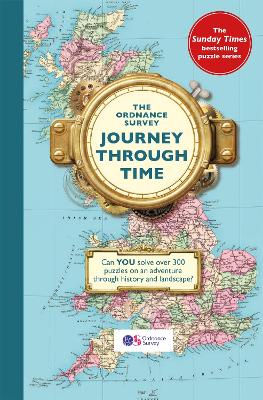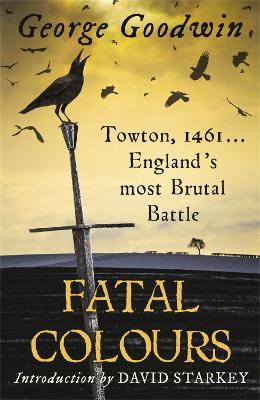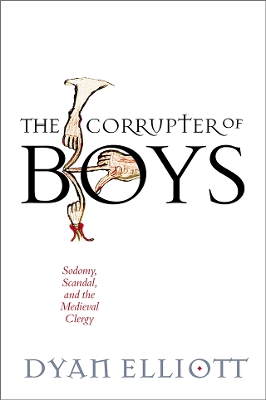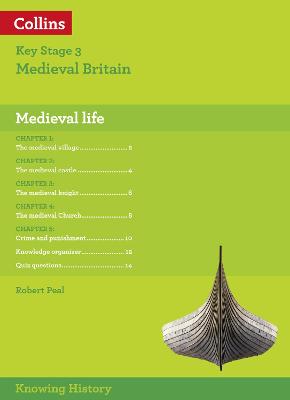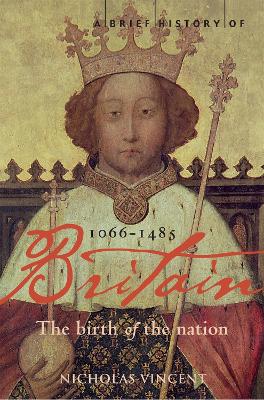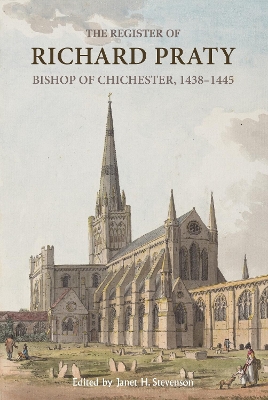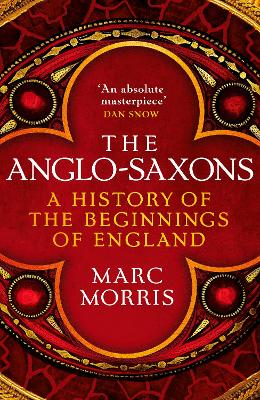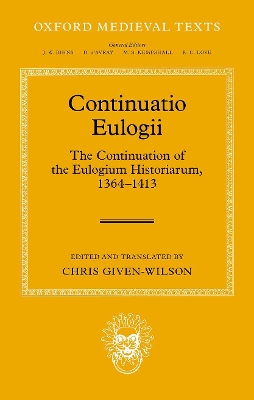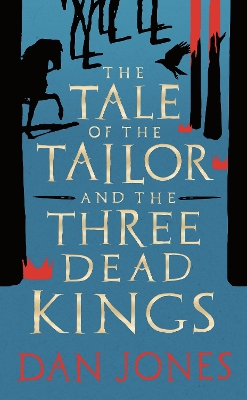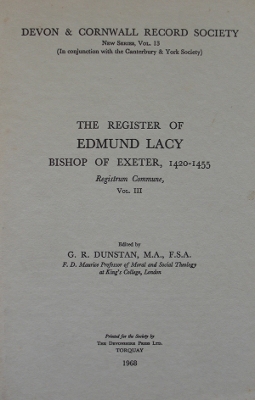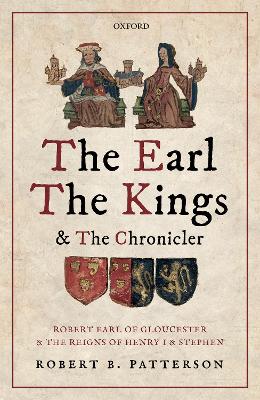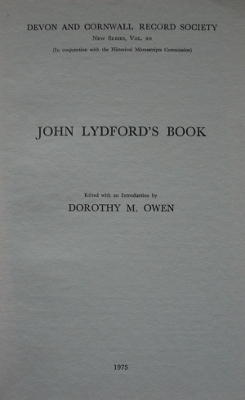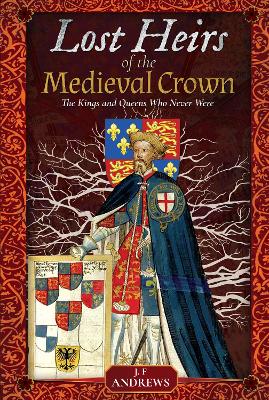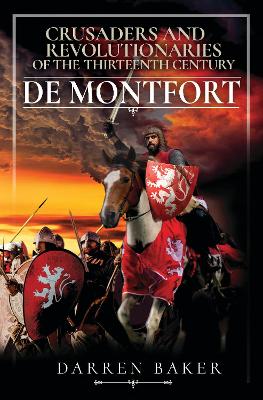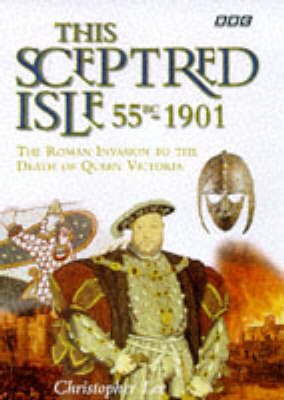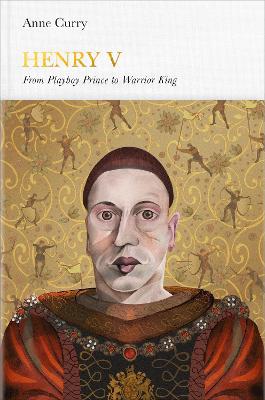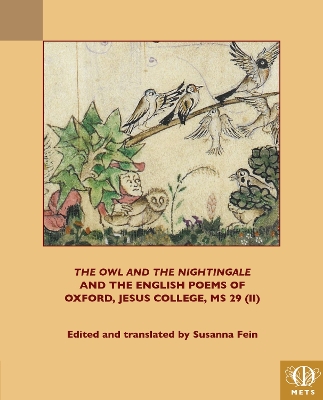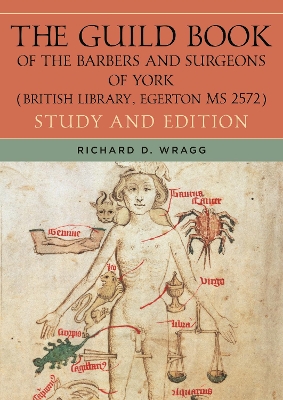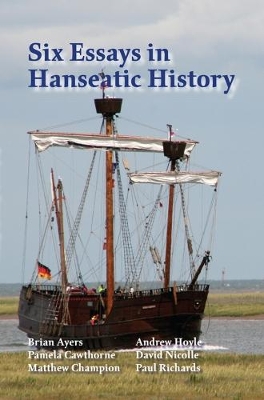The eleven articles in this volume examine controversial subjects of central importance to medieval economic historians. Topics include the relative roles played by money and credit in financing the economy, whether credit could compensate for shortages of coin, and whether it could counteract the devastating mortality of the Black Death. Drawing on a detailed analysis of the Statute Merchant and Staple records, the articles chart the chronological and geographical changes in the economy from th...
The Assassin in the Greenwood (Hugh Corbett Mysteries, #7)
by Paul Doherty
In the summer of 1302 the famous Robin of Locksley, popularly known as Robin Hood, has gone back to his outlaw ways in Sherwood Forest where he battles against royal authority, culminating in the barborous massacre of royal tax collectors and the mysterious murder of Sir Eustace Vechey, one of the sheriffs of Nottingham.Corbett and his two faithful servants Ranulf and Maltote are sent to Nottingham where they find fresh mysteries: why are three arrows shot into the air above Nottingham Castle on...
Join the nation's favourite puzzle brand as we take a journey through landscape and history. In this brand new puzzle book in the bestselling Ordnance Survery series, take a trip through time - from the earliest recorded footsteps of humans in Britain, to the spot where Caesar first surveyed Britannia, to the beaches where the battle of 1066 took place, and on through some of the most iconic moments in British history (as well as plenty of less well-known historical treasures!). Including 40 new...
A gripping account of the Wars of the Roses battle of Towton - the most brutal day in English history.'Vivid, humane and superbly researched' David Starkey'The story has never been told so well or so excitingly' Desmond SewardThe Battle of Towton in 1461 was unique in its ferocity and brutality, as the armies of two kings of England engaged with murderous weaponry and in appalling conditions to conclude the first War of the Roses. Variously described as the largest, longest and bloodiest battle...
In the fourth century, clerics began to distinguish themselves from members of the laity by virtue of their augmented claims to holiness. Because clerical celibacy was key to this distinction, religious authorities of all stripes—patristic authors, popes, theologians, canonists, monastic founders, and commentators—became progressively sensitive to sexual scandals that involved the clergy and developed sophisticated tactics for concealing or dispelling embarrassing lapses. According to Dyan Ellio...
Ready-made high quality KS3 history lessons on Medieval life – topic booklet perfect for a half term’s work. Give every student access to high quality KS3 History textbook content with this topic booklet on Medieval life. Chapter 1: The Medieval VillageChapter 2: The Medieval CastleChapter 3: The Medieval KnightChapter 4: The Medieval ChurchChapter 5: Crime and Punishment • Fits into the school timetable with ease with 5 high quality lessons, perfect for a half term...
The Black Prince and the Capture of a King
by Marilyn Livingstone and Morgen Witzel
The capture of a king in the course of a battle was a relatively rare event. This, the climactic event of the Black Prince's first campaign as commander, came at the end of nearly a year of campaigning across the southwest of France. The battle of Poitiers in 1356 is less well known than more famous clashes such as Agincourt, however, Poitiers was no less dramatic, and equally important in terms of the course of the Hundred Years War. The capture of King Jean brought France to the brink of tot...
A Brief History of Britain 1066-1485 (Brief Histories)
by Nicholas Vincent
From the Battle of Hastings to the Battle of Bosworth Field, Nicholas Vincent tells the story of how Britain was born. When William, Duke of Normandy, killed King Harold and seized the throne of England, England's language, culture, politics and law were transformed. Over the next four hundred years, under royal dynasties that looked principally to France for inspiration and ideas, an English identity was born, based in part upon struggle for control over the other parts of the British Isles (Sc...
The Register of Richard Praty, Bishop of Chichester, 1438-1445
by J H Stevenson
This is one of only three surviving Chichester bishops' registers, and the last to be published. It gives a full and detailed picture of church life during the middle years of Henry VI's reign, and so presents a valuable corrective to the period as one dominated by political strife. Richard Praty was an Oxford-trained theologian, an expert on the treatment of heretics, and a conscientious resident diocesan who worked hard to uphold standards, to ordain clergy, and yet to fulfil his...
__________________THE SUNDAY TIMES BESTSELLER 'A deep dive into one of the murkiest periods of our national history ... Splendid' DAN JONES, Sunday Times'Beautifully written, incredibly accessible and deeply researched' JAMES O'BRIEN'An absolute masterpiece' DAN SNOW'Illuminates England's weird and wonderful early history with erudition and wit' IAN HISLOP__________________Sixteen hundred years ago Britain left the Roman Empire and swiftly fell into ruin. Grand cities and luxurious villas were d...
Continuatio Eulogii (Oxford Medieval Texts)
The Continuation of the Eulogium Historiarum is one of the major contemporary narratives of the reigns of Richard II and Henry IV. It covers the dramatic half century from 1364-1413, including the later years of the ailing Edward III (who died in 1377), the turbulent reign and ultimate fall of Richard II (deposed in 1399), and the struggles of his supplanter, Henry IV (who died in 1413) to establish the Lancastrian regime. It is written in a picturesque and anecdotal style, with a great deal of...
A chilling medieval ghost story, retold by bestselling historian Dan Jones. Published in a beautiful small-format hardback, perfect as a Halloween read or a Christmas gift. One winter, in the dark days of King Richard II, a tailor was riding home on the road from Gilling to Ampleforth. It was dank, wet and gloomy; he couldn't wait to get home and sit in front of a blazing fire. Then, out of nowhere, the tailor is knocked off his horse by a raven, who then transforms into a hideous dog, his mo...
The Register of Edmund Lacy, Bishop of Exeter 1420-1455, Vol. 3 The Register of Edmund Lacy, Bishop of Exeter 1420-1455, Vol. 3
by G.r. Dunstan
This volume, the third of five, presents the register of Edmund Lacy, bishop of Exeter in the fifteenth century. It gives valuable detail about the bishop's administration of his diocese, including the ordination of priests, the activities of the bishop's administrators, and dealings with individual parishes. It will interest scholars of the medieval church and its administration, bishops, and parish life, as well as historians of medieval Devon.
The Earl, The Kings, And The Chronicler is the first full length biography of Robert (c.1088-1147), grandson of William the Conqueror and eldest son of King Henry I of England (1100-35), who could not succeed his father because he was a bastard. Instead, as the earl of Gloucester, he helped change the course of English history by keeping alive the prospects for an Angevin succession through his leadership of its supporters against his father's successor, King Stephen (1135-54) in the civil war...
John Lydford was a fourteenth-century canon lawyer and cleric who acted as an advocate in the church court at Canterbury and held various official positions in the English church. He left a book of notes and documents relating tocanon law, which are edited here with an introduction. Its contents include legal formulas for use in court cases, notes about points of law, and records of particular cases drawn from the church courts of Oxford, Hereford, Winchester and Exeter. John Lydford's book th...
When William the Conqueror died in 1087 he left the throne of England to William Rufus his second son. The result was an immediate war as Rufus's elder brother Robert fought to gain the crown he saw as rightfully his; this conflict marked the start of 400 years of bloody disputes as the English monarchy's line of hereditary succession was bent, twisted and finally broken when the last Plantagenet king, Richard III, fell at Bosworth in 1485. The Anglo-Norman and Plantagenet dynasties were reno...
Crusaders and Revolutionaries of the Thirteenth Century
by Darren Baker
One of the families that dominated the thirteenth century were the de Montforts. They arose in France, in a hamlet close to Paris, and grew to prominence under the crusading fervour of that time, taking them from leadership in the Albigensian wars to lordships around the Mediterranean. They marry into the English aristocracy, join the crusade to the Holy Land, then another crusade in the south of France against the Cathars. The controversial stewardship of Simon de Montfort (V) in that conflic...
Based on a major Radio 4 series, this is an account of British history from the Roman invasion to the death of Queen Victoria. It focuses on the significant events and personalities that shaped Britain over nearly 2000 years, tracing its emergence from the Dark Ages which followed the Romans' departure, through the great flowering of culture in medieval times and the gradual evolution of the modern state, to the making of an empire and the huge changes brought about by the industrial revolution.
Henry V's invasion of France, in August 1415, represented a huge gamble. As heir to the throne, he had been a failure, cast into the political wilderness amid rumours that he planned to depose his father. Despite a complete change of character as king - founding monasteries, persecuting heretics, and enforcing the law to its extremes - little had gone right since. He was insecure in his kingdom, his reputation low. On the eve of his departure for France, he uncovered a plot by some of his closes...
An edition and accompanying translation of this late C13th anthology of early Middle English verse. In addition to the original text and Modern English translations, the edition contains a substantial scholarly introduction, notes and a substantial bibliography. Oxford, Jesus College, MS 29 (II), a thirteenth-century manuscript, contains the longest surviving English verse sequence from the period between the Exeter Book and the Harley Lyrics. The sequence is varied in subject, with poems of r...
The Guild Book of the Barbers and Surgeons of York (British Library, Egerton MS 2572)
by Richard D. Wragg
Produced in 1486 and subsequently augmented, the Guild Book of the Barbers and Surgeons of York (British Library Egerton MS 2572) is a unique record of the knowledge, ambitions, activities and civic relationships maintained by the Barbers and Surgeons Guild over a period of 300 years. The manuscript's earliest folios contain images, astrological tracts, a plague treatise and a bloodletting poem. To these were added early modern ordinances and oaths, a series of royal portraits, and the names of...
